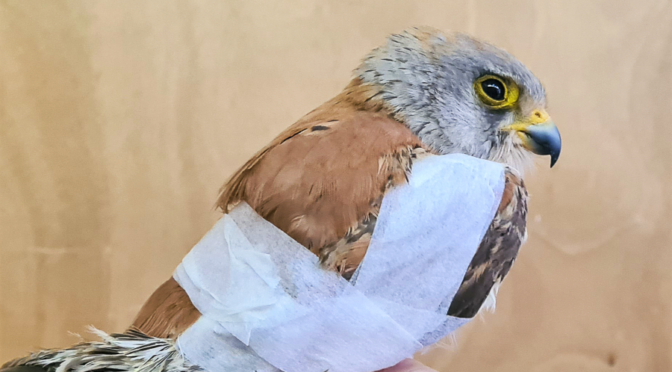Views: 1154
GOB presented the annual report for 2022 for the Centre for Recuperation of Wild Animals in Menorca. During the year, they cared for 1388 of 81 different species. There were 1800 visitors, including schoolchildren from 13 different educational centres, people attending family workshops, and other visits in general.
The majority of animals that enter the animal recuperation centre have suffered from some form of human activity: on roads, power lines, collisions with large windows, dangers from urban environments, the introduction of invasive species… Our purpose is to try to diminish the negative consequences of human activity, by collecting and trying to make as many animals as possible better, learning from them and giving essential environmental education. Disseminating the impacts and consequences on wildlife is a main objective. The information that we gather helps to make proposals for reducing the reasons for their admission.
Tortoises with 652 brought in, are by far the most assisted species. Most of them have come from captivity, but 175 from accidents. As for the rest of the species, the main admissions are bird chicks that have been born in towns, fallen out of their nests and abandoned. Most of these chicks are those of swallows and sparrows, as well as owls, kestrels, thrushes and green finches. Many birds that are brought in are the result of collisions especially on roads (47). Road collisions are suffered particularly by tortoises, hedgehogs, owls, kestrels and barn owls. Notable, also, are collisions with large windows undetected by birds flying rapidly, resulting in serious accidents.
Power lines are also causes of repeated accidents, through collisions or electrocution. 35 have been brought in because of electrocution. Those affected are usually large birds such as ravens, raptors and gulls. Other causes for animals being taken in are the abandoned fishing nets and plastic ropes that affect gulls and especially marine turtles. Attacks by dogs and cats on wild animals have caused 19 admissions. Also notable are 19 cases of birds falling into water tanks, most worrying of which are the raptors. It is possible to reduce this problem by putting floating ramps so that the animals that fall in accidentally can get out.
Exotic invasive species are a problem for wild animals. Notable is the case of water turtles from Florida some of which have been freed into the wild and are examples that have established themselves in different damp areas of Menorca. Now the law prohibits owning these turtles, and the Centre of Recuperation is where people who have any should take them and never release them into the wild. In 2022 we received 28 exotic turtles.
The Centre of Recuperation of Menorca is able to work thanks to the enormous help of many people and entities. Its management by GOB is enabled thanks to a collaboration agreement with the Consorci de Fauna de les Illes Balears (COFIB). Essential, also, is the help of the Lithica Foundation.
They give us the space for the Centre. GOB also thanks the veterinary clinic of Jaume Pons, the Consell Insular (Menorca Island Governing Council) and the town Halls of Ciutadella, Maó, Es Mercadal, Ferreries, Sant Lluis and Es Castell. Grateful thanks also for the help of local police, the Environment Agencies and of SEPRONA (The Nature Protection Service of the Guardia Civil).
Special thanks go to the people who have contributed to the funding of the Centre, sponsoring an animal, and to all the people who have brought in injured animals to the Centre for care. Grateful thanks, also, to the shops and businesses that have provided food. And, of course, to the whole team of volunteers, who have been a key element without whom we could not function.
The Annual Report for the year 2022 can be seen in full detail here.

